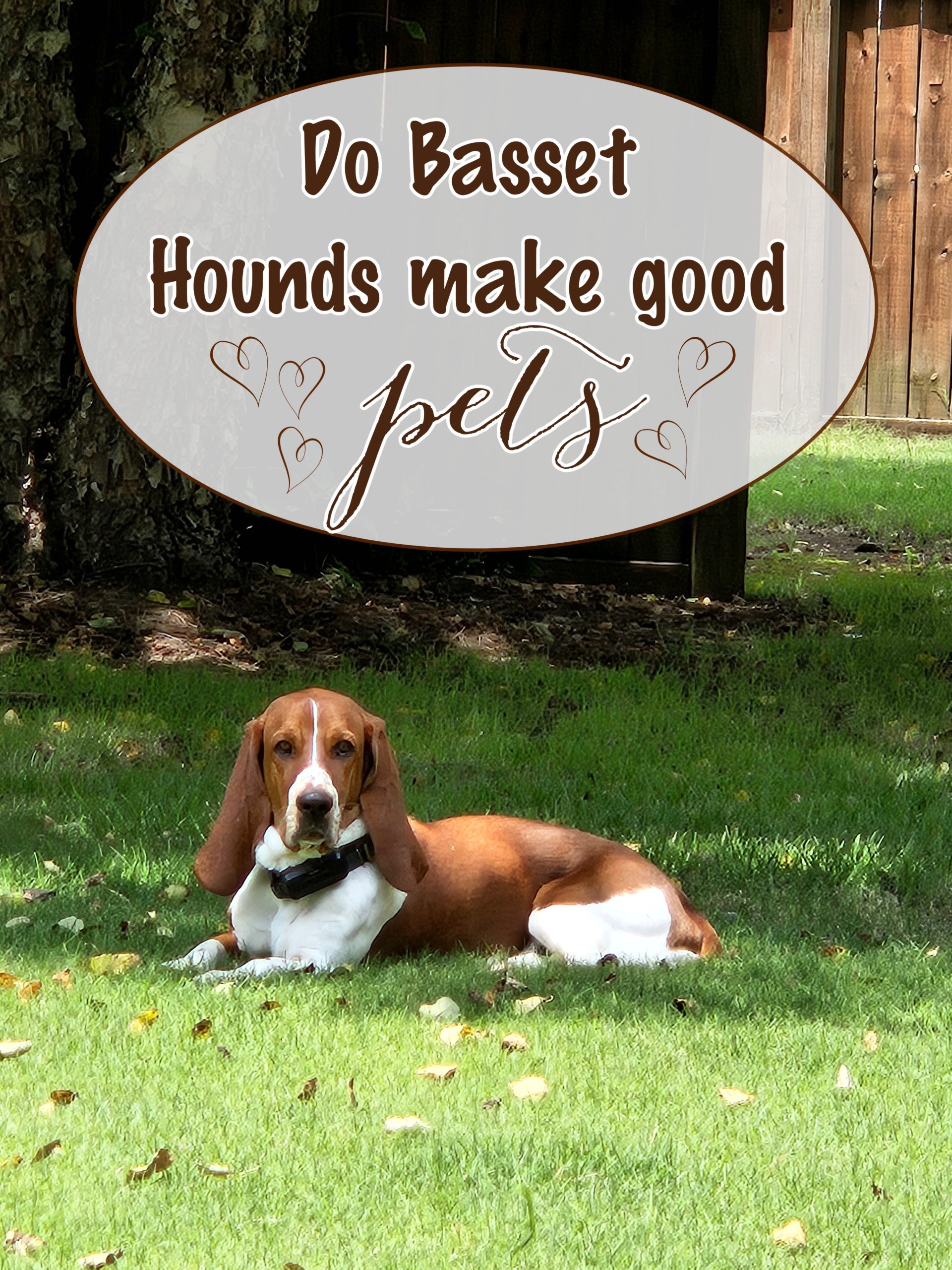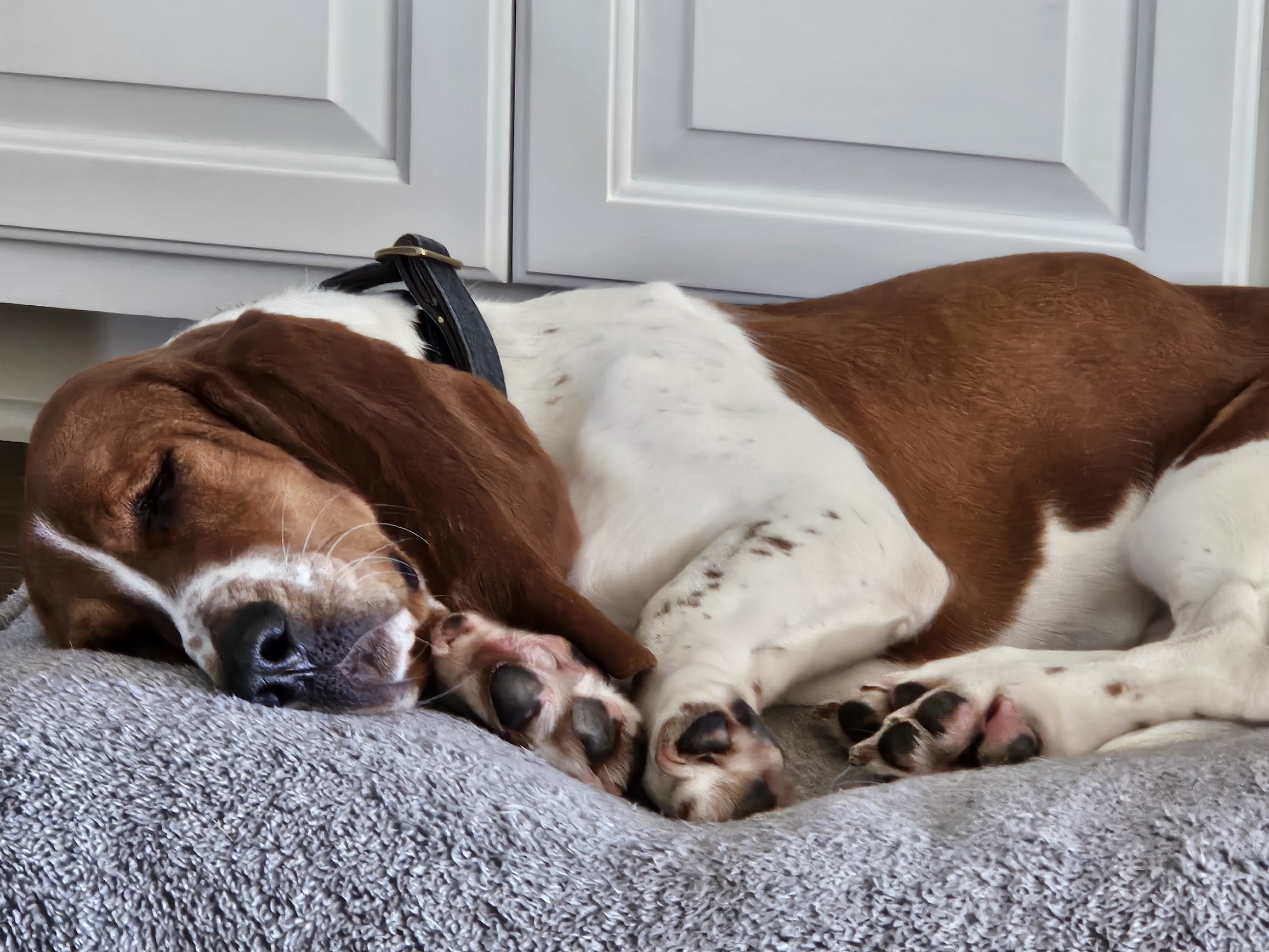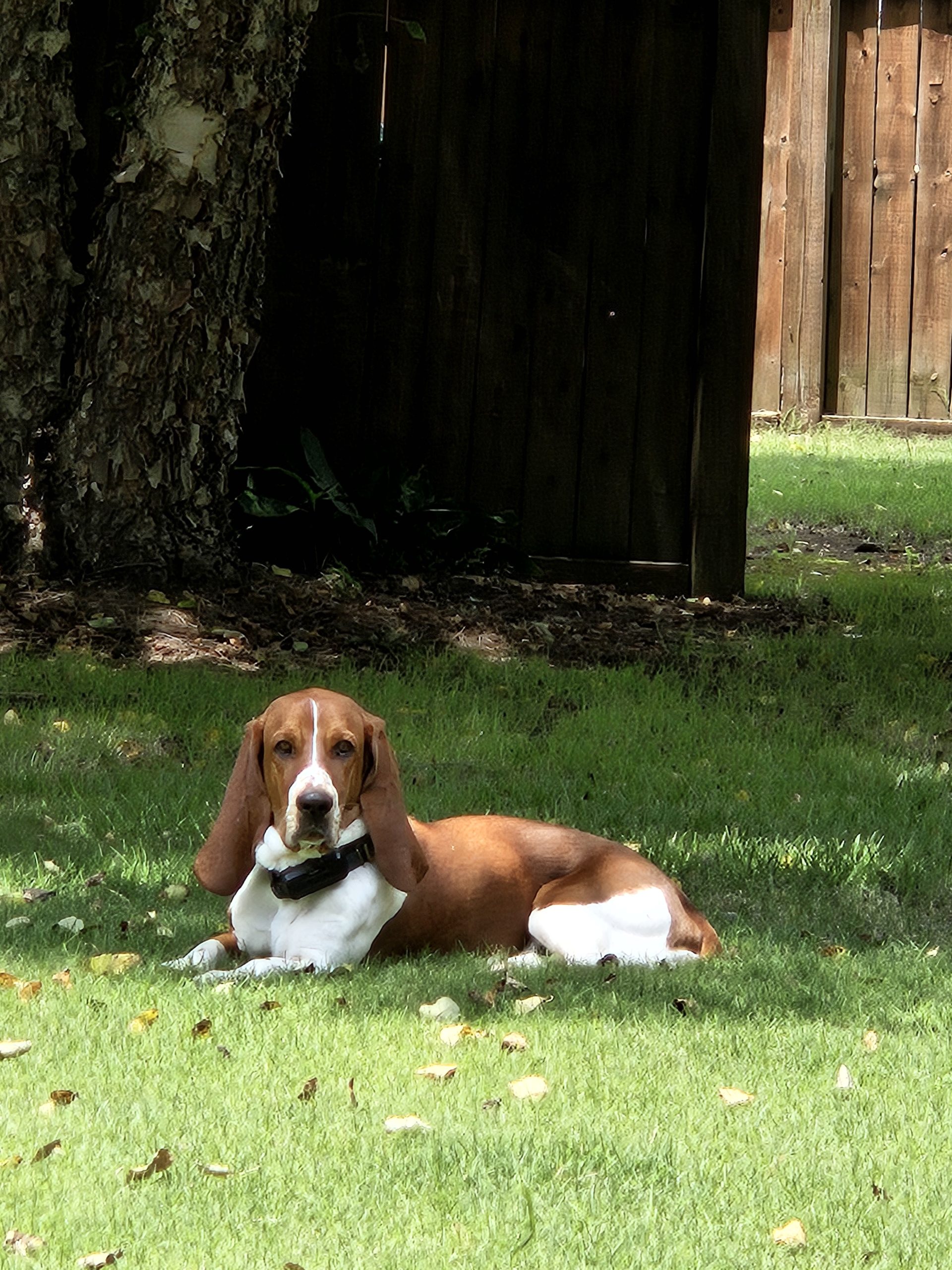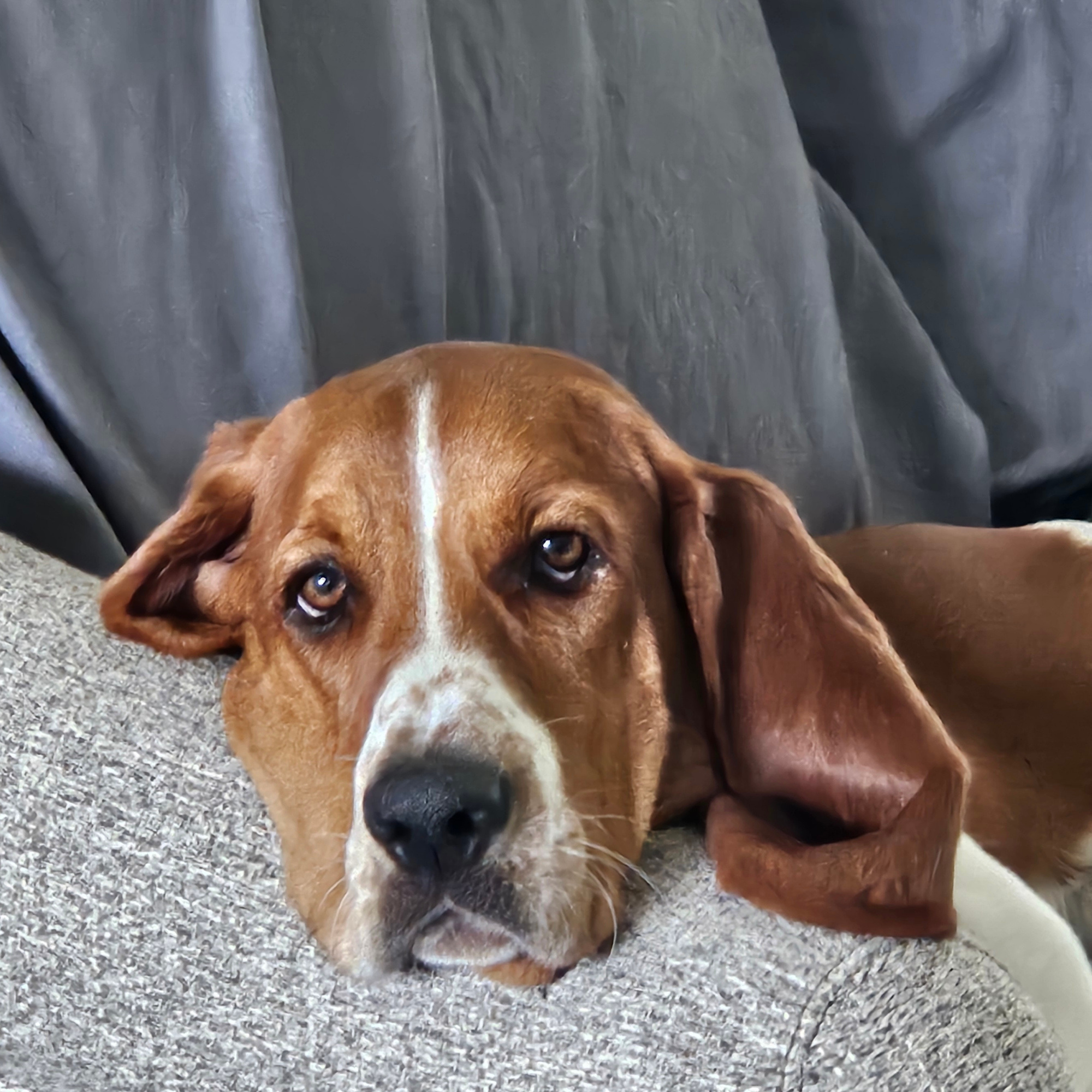Is a Basset Hound a Good Fit for a Family?
This post may contain affiliate links that won’t change your price but will share some commission.
Basset Hound can be a great fit for a family as they are known for being affectionate and gentle and generally getting along well with children and other pets, making them excellent family dogs. However, potential owners should be aware of their high prey drive, potential stubbornness, and need for consistent training due to their strong scent-hound instincts.

Is a Basset Hound a Good Fit for a Family?
Bassets are typically great with family and children. My basset loves kids and all the attention she gets from them. She is always in their rooms. When my boys aren’t home, Lucy is at my feet almost constantly.
Below are a few common traits in Bassets.
Temperament
Basset Hounds are usually sweet, friendly, and loving dogs, but they’ve got a stubborn streak and like to do things their own way. They’re great with kids because they’re patient and easygoing, making them a solid choice for families.
These dogs have quite the voice and can be pretty loud, especially if they’re excited or not getting their way. They don’t like being alone for too long and can get anxious.

Exercise
Basset Hounds are low-energy dogs, but they still need moderate amounts of exercise. A single, reasonably-paced walk a day should be enough. Daily exercise is key for your Basset. They like to nap. However, they usually like walks. They like a slow pace but have surprising stamina, so they’ll enjoy a nice long walk. However, be ready to stop frequently. Their strong sense of smell can lead to distractions during walks
Grooming
Basset Hounds have a short, smooth coat that requires little grooming, but they do shed a moderate amount. They are prone to skin rashes and ear infections, requiring frequent bathing and ear cleaning.
Health
Basset Hounds are generally healthy dogs with an average lifespan of 12 years. However, they can be prone to specific health issues, including skin and ear infections, obesity, elbow dysplasia, and Gastric Dilatation Volvulus (GDV).
Training
Basset Hounds are hunters. They’re smart, quick thinkers who can figure things out independently. That’s why I make sure to start early with obedience training and socialization.
Ideal home environment
Basset Hounds are happiest when they are near to and spending time with their family. They do not do well with being left alone for long periods. Bassets love human interaction and often get along well with other pets if properly introduced.
Care
Basset Hounds are easygoing and love being around people. They’re super social and don’t handle being left alone very well. They might start howling or digging to pass the time if they’re outside solo. Inside, they may howl just as much. These pups are happiest when they’re hanging out with their family. If you’re gone a lot, getting them a furry friend—another dog or cat—could help keep them company.
These dogs are major food lovers and will do whatever it takes to snag an extra bite, usually by giving you their best sad-eyed stare. While it might be hard to resist, try not to give in. Bassets can easily gain weight because they like to eat. Stick to the recommended portions and go easy on treats to keep them healthy.

Basset Hound Frequently Asked Questions
History
Basset Hounds originally came from France in the 16th century, and their name comes from the French word bas, meaning low. They’re believed to be descendants of the St. Hubert hounds, which were developed by the patron saint of hunters.
Because of their unique build, Basset Hounds are more prone to back injuries. To keep my pup safe, I keep her activities stay light. Even as adults, you’ll want to watch their movements. As they age, stairs can become a challenge, and since they’re heavy dogs, carrying them up or down might not be an option. Planning can save you both some trouble.


One Comment